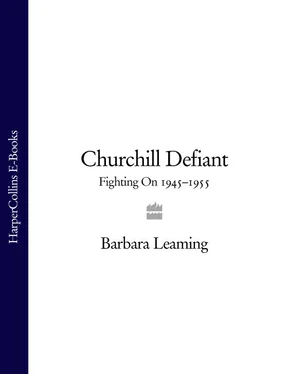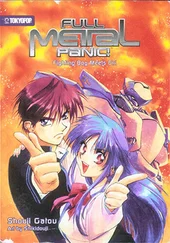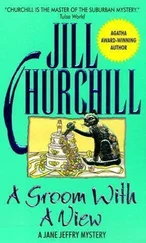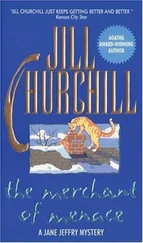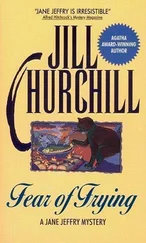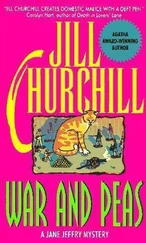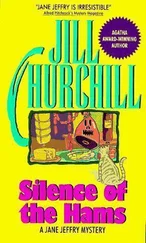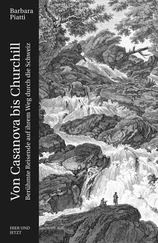By the time Churchill dined with Stalin on Wednesday, 18 July, he had had a chance to talk to Truman, who assured him that he had not informed the Soviet leader about the bomb. Churchill had concluded overnight that, once they were certain of the test results, it would actually be a very good idea were Stalin to be made aware that the Western allies had a singular new weapon. What continued to worry him, however, was the possibility that Truman would agree to share technical information with Moscow. Truman said he would not, but Churchill remained uneasy. Western possession of the bomb would be of little use in the negotiations if Stalin could count on being able to build one as well.
When Churchill arrived at half past eight, Stalin’s two-storey stone villa was surrounded by machine-gun-toting thugs. A phalanx of seven NKVD – secret police – regiments and nine hundred bodyguards had accompanied the dictator to Potsdam. Stalin had lived a life of violence, fighting off rivals and would-be usurpers with murder and bloodshed, and he was perpetually fearful of being treated in kind. In the present setting, the savage vengeance the Red Army had wreaked on the Germans provided an additional motive for an assassination attempt. Still, once through the numerous layers of security, Churchill was welcomed with friendly informality. Stalin had no other guests. Only the leaders’ interpreters, Birse and Pavlov, were scheduled to join them at dinner.
Though the surviving members of the original Big Three had become antagonists, they were bonded by a sense of themselves as men apart, the last of a superior breed that had included Roosevelt. As Churchill later said, together they had had the world at their feet and commanded many millions of men on land and sea. Churchill’s personal history with Stalin had begun with their written exchanges in 1941 after Germany’s surprise attack on Russia. When they first met, in Moscow in 1942, Stalin’s insults had nearly caused Churchill to break off their talks and fly home at once. The British Ambassador, Archibald Clark Kerr, had worked hard to assuage Churchill’s fury. Kerr urged him to reflect on the relative unimportance of his own wounded feelings weighed against the many young lives that would be sacrificed if he did not swallow his pride and return to the talks. Churchill resolved that in the interest of advancing their shared objective of defeating Hitler he would do what it took to build a relationship with Stalin, even somehow find a way to ‘like’ him. In subsequent meetings – at Tehran, again in Moscow, and at Yalta – Churchill and Stalin had developed a deep fascination with and respect for each other.
Though Churchill had no idea that Stalin’s late arrival at Potsdam had been due to a minor heart attack, he thought his host tonight looked ill and ‘physically rather oppressed’. Stalin’s once black hair was a grizzled mop, as were his shaggy moustache and eyebrows. His narrow, evasive eyes were yellow, his teeth stained and broken. Short and stocky, he had a withered left arm that he held woodenly in his right hand, palms up. War had aged the sixty-seven-year-old Generalissimo prematurely. He had worked too hard, slept too little, and not had a holiday in years. Despite his physical condition, he had made no more effort to moderate his appetites than Churchill had. In the course of the dinner, which extended to the next morning, there was a prodigious amount of smoking, eating, and drinking by both men.
When Churchill and Stalin last saw Roosevelt, at Yalta, the President had been a cadaverous figure with waxen cheeks and trembling hands. At times he had been lucid, but at other moments he sat with his mouth open, staring ahead, unable to follow the discussion. Roosevelt had clung to office in the belief that he was indispensable. Five months later, the conversation between Stalin and Churchill naturally turned to the death of great men and the problems of succession. A discussion of how Roosevelt’s successor was doing under the circumstances prompted Churchill to ask if Stalin had given any thought to what would happen at the Kremlin after he died.
Churchill had designated his own political heir. In 1942 he had written to King George that in the event of his death he wanted Anthony Eden to carry on as prime minister because he possessed the ‘resolution, experience and capacity’ the times demanded. Tall, slim, graceful, debonair, the forty-eight-year-old Foreign Secretary accompanied Churchill to Potsdam. Eden had a furrowed but handsome face with penetrating pale blue eyes and a carefully trimmed grey moustache, and he spoke in a mellifluous baritone. Stalin too had brought an heir apparent to the Potsdam Conference: Eden’s opposite number, the fifty-five-year-old Soviet Foreign Minister Vyacheslav Molotov. Recently, Stalin had anointed Molotov with the words, ‘Let Vyacheslav go to work now. He is younger.’ Small and chunky, Molotov spoke with a slight stammer and had an impassive, ‘lard-white’ face. When he was upset, though his countenance remained stony, a telltale lump in his forehead swelled and throbbed alarmingly.
Stalin insisted to Churchill that he had arranged everything. He claimed to have groomed good men and thereby to have guaranteed the continuity of Soviet policy for thirty years. He made it all sound so sensible, but then Stalin was adept at portraying himself to foreigners as utterly reasonable and rational. In fact, in the words of the American diplomat George Kennan, he was ‘a man of absolutely diseased suspiciousness’. Stalin had a history of exterminating not only his opponents but also those whose character suggested that they might oppose him later. He sniffed plots and cabals everywhere, and never more so than after the war. In 1945, the leader widely venerated as his nation’s saviour was at the pinnacle of his power. At the same time, his own physical decay left him feeling vulnerable to the machinations of the ambitious younger men who formed his circle. As the fawning Molotov and other contenders for the postwar Soviet leadership well knew, Stalin was capable of ordering their arrest or execution at any time, ‘no questions asked’. (As a precaution, Molotov slept with a loaded revolver under his pillow and never permitted his sheets or blankets to be tucked in lest he have to leap out of bed and defend himself in the middle of the night.) Stalin spoke matter-of-factly of retiring on a pension in two or three years, but he was no more inclined to leave office willingly any time soon than Churchill was.
This evening, when Churchill voiced anxiety about the British election, Stalin expressed confidence that the Conservative leader had nothing to worry about. The concept of free elections meant nothing to Stalin. Churchill was in power; surely he had arranged to stay there. The only real mystery as far as the dictator was concerned was why Churchill would go to the trouble of flying home for the result. Characteristically, Stalin suspected a ploy on Churchill’s part.
Stalin was right to sense that Churchill was up to something, though at this point the latter’s calculations had nothing to do with the British election. Churchill asked whether there would be free elections in the territories under Soviet control, and he raised concerns that the Red Army was preparing to surge westward across Europe. When Stalin sought to reassure him on every count, Churchill took care not to provoke an angry confrontation by too directly challenging anything the Generalissimo said. Churchill was biding his time until he knew what kind of hand he had to play with Stalin.
Exactly a week remained before Churchill was due to fly to London. Every day that passed without news from New Mexico with precise details of the bomb test was an agony to him. There were plenary sessions on Thursday and Friday, but still no additional information came in. At half past four on Saturday, Churchill was about to leave for the Cecilienhof when Stimson arrived with the full report. This was the document the Prime Minister had been waiting for since Tuesday; everything depended on its contents. But no sooner had he begun to read than an aide reminded him that if he did not go now, he would be late for his 5 p.m. meeting. Following the day’s talks, Stalin was due to host a party for all of the conference’s participants, and Churchill naturally was expected to attend.
Читать дальше
